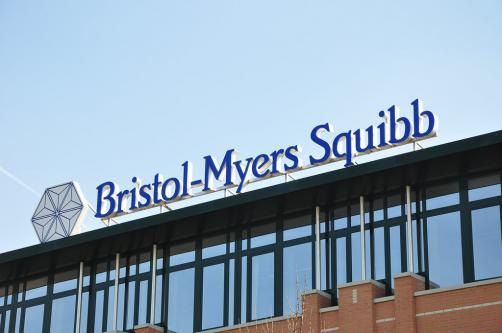
FDA approves BMS’ Zeposia in relapsing multiple sclerosis, but COVID-19 will delay its market entry
pharmafile | March 26, 2020 | News story | Sales and Marketing | Bristol-Myers Squibb, COVID-19, Zeposia, coronavirus, multiple sclerosis, pharma
Bristol-Myers Squibb has secured approval with the FDA for Zeposia (ozanimod) 0.92mg in relapsing forms of multiple sclerosis (RMS), but confirmed the drug wouldn’t be racing to market, as is usually the case.
The approval covers a range of RMS variants, including clinically isolated syndrome, relapsing-remitting disease, and active secondary progressive disease. The decision makes Zeposia “the only approved sphingosine-1-phosphate (S1P) receptor modulator that offers RMS patients an initiation with no genetic test and no label-based first-dose observation required for patients”, according to the manufacturer.
Data submitted in support of the application were drawn from the largest head-to-head RMS studies ever conducted, comparing Zeposia to an active comparator in over 2,600 participants. The findings of these studies showed that BMS’ drug generated a 48% reduction in annualised relapse rate (ARR) following the first year of use, and 38% following the second.
Furthermore, Zeposia showed a 63% greater reduction in the number of T1-weighted gadolinium-enhanced (GdE) brain lesions compared to Biogen’s Avonex after one year, as well as a 48% reduction in new or enlarging T2 lesions. After two years, these rates stood at 53% and 42% respectively.
BMS noted that there was no statistically significant difference in three-month and six-month disease progression between the two drugs over the two-year period.
However, with the decision, the FDA warned that the drug’s maintenance dosage should be achieved via an up-titration scheme in order to avoid the possibility of a transient decrease in heart rate or atrioventricular delays.
“With the FDA approval of Zeposia, appropriate patients with relapsing forms of multiple sclerosis will have another oral treatment option with meaningful efficacy to help address the disease’s hallmark relapses and brain lesions,” commented Dr Samit Hirawat, Chief Medical Officer for BMS. “Zeposia has substantial clinical potential, and we are well positioned with our heritage in transformational science to ensure this innovative compound ultimately benefits as many patients as possible.”
BMS acquired Zeposia in its acquisition of Celgene in 2019.Despite the success of this latest approval, BMS has decided in light of the ongoing COVID-19 outbreak to delay taking Zeposia to market, based on “what’s in the best health interest of our patients, customers and employees”. The company confirmed it would be monitoring the global situation and will decide on when to proceed with commercialisation of the therapy in partnership with the neurology community.
Matt Fellows
Related Content

Gilead’s Veklury recommended by NICE for COVID-19 treatment
Gilead Sciences has announced that the National Institute of Health and Care Excellence (NICE) has …

NICE expands access to Paxlovid for 1.4 million people at risk of severe COVID-19
The National Institute for Health and Care Excellence (NICE) has announced that it has expanded …

Moderna shares data from phase 1/2 trial for combination flu and COVID-19 vaccine
Moderna has announced positive interim results from the phase 1/2 trial of mRNA-1083, its investigational …








